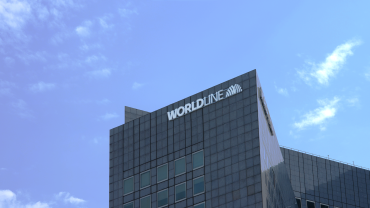
Worldline Shares Plunge 40% After Media Probe Into Fraud Cover-up
6 minute read

Payment processor Worldline faces regulatory probes and stock collapse after reports reveal systematic fraud oversight failures
Key Takeaways
- Worldline shares crash 40% in single day following media investigation alleging the French payments firm covered up client fraud and knowingly processed transactions for disreputable merchants including gambling and adult entertainment sites.
- Stock reaches all-time low of €3.42 with shares now down over 96% from their mid-2021 peak, reducing the company’s market cap to approximately €900 million despite €1.8 billion in cash reserves.
- Regulatory investigations intensify across Europe with Dutch central bank probe finding weak controls and German BaFin audit raising concerns about Worldline’s Swedish payment orchestration operations.
Introduction
Worldline SA faces its deepest crisis as shares plunged over 40% in a single trading session following explosive allegations from European media outlets. The French payments giant stands accused of deliberately maintaining business relationships with high-risk merchants across gambling, adult entertainment, and other questionable sectors while allegedly covering up client fraud to protect revenue streams.
The investigative report, published by 21 European media outlets including Mediapart under the “Dirty Payments” investigation, relies on confidential internal documents and company data. These revelations have triggered the most severe market reaction in Worldline’s history, with the stock reaching an all-time low and raising fundamental questions about the company’s risk management practices.
Key Developments
The media investigation centers on allegations that Worldline not only tolerated questionable clients but actively pursued them across European markets. According to Investing.com, the company continued these practices even after pledging to tighten risk policies in mid-2023.
Worldline responded by acknowledging that 1.5% of its acquired transaction volumes came from “high-brand risk” sectors, including online casinos, stockbroking platforms, and adult dating services. The company stated it has “strengthened its merchant risk framework to ensure full compliance with laws and regulations” and terminated unsuitable commercial relationships.
Regulatory scrutiny has intensified across multiple jurisdictions. A 2023 BaFin audit specifically highlighted concerns about Worldline’s Swedish payment orchestration operations, where the company operates as a technical operator without obligations to perform customer verification checks or monitor payment flows.
The Dutch central bank opened an investigation into Worldline’s Global Collect Services unit in 2022, finding weak internal controls. Under regulatory pressure, the company subsequently stopped processing payments from non-complying customers.
Market Impact
Worldline shares crashed nearly 40% on Wednesday, reaching an all-time low of €3.42 in early Paris trading before recovering slightly to €3.62. The stock has now lost over 96% of its value since mid-2021, reducing the company’s market capitalization to approximately €900 million.
Trading volumes surged as investors fled the stock, with shares experiencing their worst single-day performance in company history. The dramatic selloff reflects deep investor concerns about potential regulatory sanctions, client departures, and long-term reputational damage to the payments processor.
Credit markets have also reacted negatively, with analysts noting potential impacts on Worldline’s borrowing costs and banking relationships. The company’s enterprise value now trades at historically low multiples relative to its revenue base.
Strategic Insights
The crisis exposes fundamental weaknesses in Worldline’s risk management infrastructure and regulatory compliance framework. Bernstein analysts note that 50% of the platform’s volume in Sweden bypasses regulated oversight, creating significant operational risk exposure.
With €1.8 billion in cash reserves against a €900 million market cap, Worldline has become a potential takeover target. The company’s severely depressed valuation could attract private equity interest, though any buyer would inherit ongoing regulatory challenges and turnaround requirements.
The scandal affects Worldline’s ability to compete for new enterprise contracts and maintain existing client relationships. JPMorgan analysts highlight increased challenges in customer discussions due to reputational damage, potentially accelerating revenue declines in key business segments.
Expert Opinions and Data
Bernstein analysts identify the Swedish operations as particularly problematic, stating “the group as a technical operator is not obliged to carry out KYC or monitor payment flows.” They suggest regulatory authorities might enhance anti-fraud and anti-money laundering mandates across Worldline’s operations.
JPMorgan analysts acknowledge the stability of Worldline’s joint venture with Crédit Agricole, noting the bank was aware of compliance issues during its equity investment. However, they warn of mounting pressure on existing partnerships and acquisition discussions.
CEO Pierre-Antoine Vacheron has implemented cost-cutting measures worth €50 million while terminating merchant relationships representing €130 million in annual revenue. The company reported Q1 2025 revenue of €1.068 billion, down 2.3% year-on-year, with particular weakness in Financial Services revenue falling 8.9%.
Despite processing €500 billion in transactions annually and maintaining relationships with major clients including ANA, Lufthansa, and Blizzard, Worldline reported a €297 million net loss for 2024. This represents an improvement from the previous year’s €817 million loss, which included a significant goodwill write-down.
Conclusion
Worldline confronts its most severe operational and reputational crisis, with regulatory investigations expanding across European markets and investor confidence severely damaged. The company maintains its “zero-tolerance” stance on non-compliance while implementing enhanced risk controls and client screening procedures.
The payments processor’s dramatically reduced valuation reflects market skepticism about management’s ability to restore regulatory standing and competitive position. With ongoing investigations and potential sanctions pending, Worldline faces fundamental questions about its business model and compliance infrastructure in high-risk market segments.





